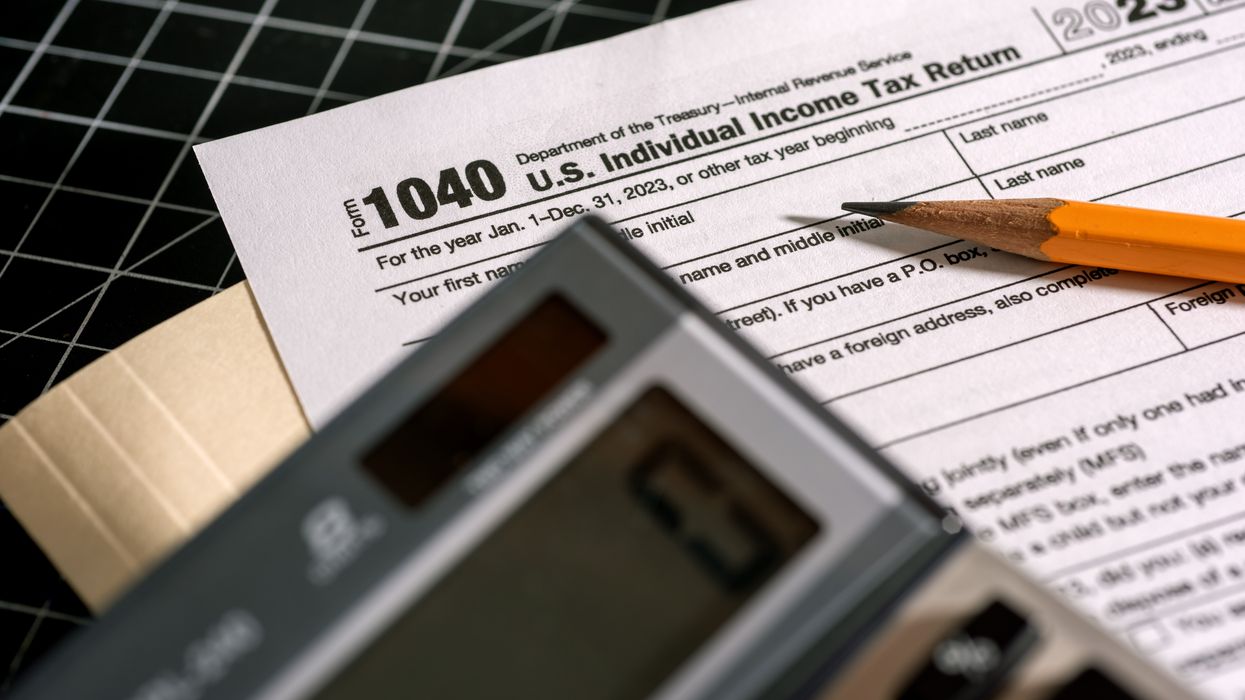"The U.S. 'fiscal gap'—how much taxes need to be raised or spending cut to keep public debt stable as a share of gross domestic product—was entirely created by the Republican tax cuts of 2001, 2003, and 2017," Bivens wrote. "The 'tax gap'—the amount of taxes owed but not paid each year—is currently larger than the overall fiscal gap. It is driven by the richest U.S. households and businesses cheating the law and underpaying taxes."
Extending the Tax Cuts and Jobs Act (TCJA) provisions, currently set to expire at the end of this year, "would increase the fiscal gap by nearly 50%, from 2.1% to 3.3%," Bivens explained. "No matter how these tax cuts are financed, the result will hurt most working families, especially low-income households."
"Cuts to key social insurance and income support programs like Supplemental Nutrition Assistance Program (SNAP, commonly called food stamps) or
Medicaid would do substantial damage to the nation's future workforce by depriving millions of children today of key health and developmental supports," he warned.
"Further, cuts of this size, if phased in quickly, would
at minimum require the Federal Reserve to aggressively cut interest rates to avoid a recession," Bivens continued, "and could quite easily overwhelm any attempt by the Fed to buffer the economy from their effect, leading to recession and job losses."
Bivens argued that "expanding public investment and raising federal revenue via taxes that mostly come from high-income households is the most optimal way to close fiscal gap, boost economic productivity, and produce a fairer economy."
"If TCJA expansions for the rich are inevitable, this leaves three options: running deficits, increasing regressive taxes (in the form of tariffs, for example), or spending cuts," he added. "While none of these options is ideal, running deficits has the potential to be less harmful for American families, whereas regressive taxation and spending cuts will categorically cause the most harm."
The think tank published Bivens' report as a national coalition, Small Business for America's Future,
released its findings from a survey of 863 small business owners' sentiments on the tax code, conducted from mid-December to late January.
The survey shows that just 3% of small business owners hired more workers as a result of the TCJA, 6% increased investments or employee wages, and 9% were able to pay down debts. Meanwhile, 43% reported no positive impact from the 2017 law.
The coalition found that small business owners are critical of the U.S. tax code in general and the TCJA specifically. Of those surveyed, 91% of said the tax code "favors large corporations over small businesses" and 76% report that wealthy individuals and big companies benefited most from the 2017 law, which critics have long called the "GOP Tax Scam."
The TCJA's small business pass-through deduction lets owners exclude up to 20% of their qualified business income from federal income tax. However, critics have called it
complex and the survey shows that 39% of owners weren't sure if they claim the benefit.
The survey also highlights solutions that are popular with owners, such as exempting the first $25,000 of profit from federal income tax, creating a simplified standard deduction, making the tax code less complicated, and modernizing the Internal Revenue Service. Additionally, 61% of respondents support raising the corporate tax rate to pay for new small business tax benefits.
"By slashing the corporate tax rate permanently from 35% to 21%, while offering most small business owners only a temporary and complex 20% tax deduction, the TCJA created a two-tier tax system that overwhelmingly favored large corporations," said Walt Rowen, co-chair of Small Business for America's Future and president of the Susquehanna Glass Company in Pennsylvania.
"This isn't just hurting business owners—it's failing workers, families and local economies in every community across the country," Rowen added. "Now, Congress has a choice—they can either extend a failed policy or create tax reform that actually works for Main Street and communities."
The GOP controls the White House and both chambers of Congress, but those surveyed by the coalition were divided in terms of political parties: 23% said they didn't know or preferred not to say while 29% identified as Republicans, 25% as Democrats, and 19% as Independents. More than three-quarters were age 55 or older, 56% were white, and just over half were men. A quarter of owners listed themselves as the only employee, and nearly half had just 1-10 workers.
"Small businesses create jobs, drive innovation, and provide essential services in every community across America. But this law has done nothing to help them fulfill their potential," said Anne Zimmerman, a coalition co-chair and certified public accountant in Ohio. "When nearly 40% of small business owners can't even determine if they received the law's main small business tax deduction, while large corporations got an immediate and permanent tax cut, something is fundamentally wrong with our approach."
The small business survey and EPI's report followed polling
released Tuesday by Data for Progress, Groundwork Collaborative, and the Student Borrower Protection Center that shows a majority of Americans believe not only that the rich pay too little in taxes but also that lawmakers shouldn't slash popular programs to give them more tax cuts.
"Americans might not always see eye to eye, but one thing's clear: Nearly every voter—across party lines—wants to protect Medicare, Medicaid, Social Security, and SNAP," said Groundwork Collaborative. "Meanwhile, the GOP is pushing to gut them for even more tax breaks for the wealthy."




